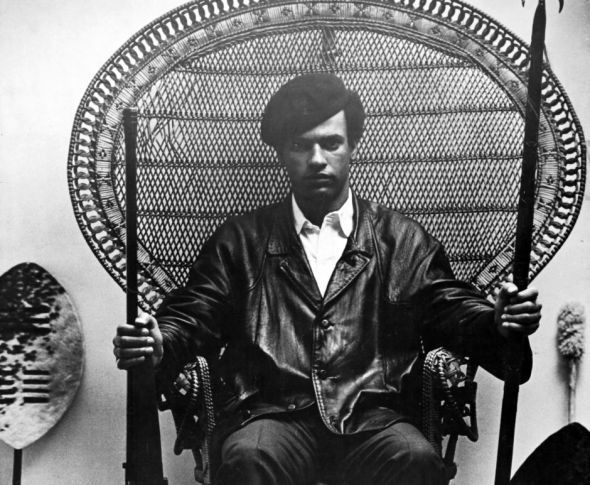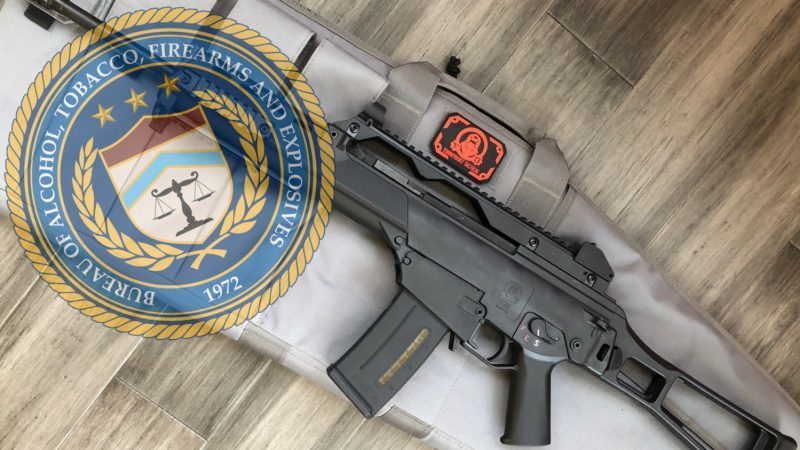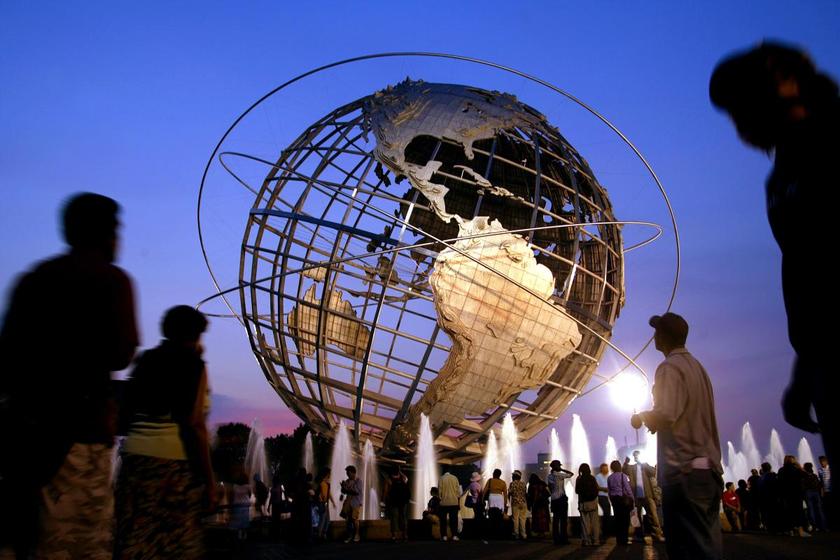States such as New York have been signing conceal carry restrictions into law like there’s no tomorrow. And recently there have been claims that these restrictions disproportionately impact minority communities. Likewise, there is a lawsuit claiming that the “good moral character” clause included in New York’s Conceal Carry Improvement Act (CCIA) is rooted in racist tradition, and it’s subjective nature is just another way to deny minorities gun permits.
These developments in the continued suppression of Americans’ God-given right to bear arms come on the heels of a trend showing an increase in black gun ownership over the past couple of years. 44 percent of retailers saw an increase of African Americans purchasing firearms in 2021.
Also, according to the National Shooting Sports Foundation (NSSF), at least 40 percent of gun sales in 2020 were made by first-time gun buyers. Among these first-time gun buyers were young people, women and minorities, from all over the spectrum of political views. In 2020, the number of gun purchases by African Americans increased 56% from what it was in 2019, according to research by the NSSF.
And a 2022 New Jersey Gun Violence Research Center report found that Black and Hispanic gun owners are several times more likely to carry a firearm outside the home than white gun owners.
The NSSF’s Managing Director of Public Affairs Mark Oliva has spoken at length about the rise in gun ownership among black Americans, who are looking to become educated and highly trained with the most modern firearms technology. He says that due to growing numbers of women and minorities purchasing firearms, “today’s gun owner looks a whole lot less like me and looks more like the rest of America, because they are the rest of America.”
Oliva says that the typical gun owner today is “shattering the stereotypes,” and that “it’s becoming much more difficult for those who oppose gun ownership to put gun owners into a neat little box as they have in the past.”
The Rise of the National African American Gun Association (NAAGA)
The National African American Gun Association (NAAGA) has seen a dramatic growth upwards from 58 percent in 2021. And the group celebrates its 8 year anniversary this year during Black History Month on February 28. So I decided to have a chat this month with president and founder of the NAAGA Philip Smith, on topics related to black gun ownership and other present day second amendment issues.
While the NAAGA encourages black citizens to practice their second amendment rights in a safe and positive way, the group is open to anyone, not just black gun owners. The organization currently has over 2,000 white members.
“We’re not worried about where you’re coming from or what you do in your private time or how you’re dressed and all these social, political and racial litmus tests, we don’t have that,” says Smith, who makes inclusivity a core aspect of the group. “We’re gonna give u a high five and say ‘come on sister,’ regardless of your color or gender.”
Smith discussed NAAGA’s recent growth spurt with us. “Right now we’re at about 51,000 members nationally. We have over 130 chapters. We have members in every state of the U.S. and we have chapters in 38 out of the 50 states so we’re not quite there for chapters in every state but we’re getting close and our members vary.”
On the topic of gun control laws disproportionately impacting minorities, Smith concurs. “Yeah anybody can buy a Glock for $400 or a Smith and Wesson or a Daniel Defense or any gun that you want.”
But the barriers for people that want to legally carry a gun seem to grow more and more expensive. Smith explains how these would-be gun owners are then required to take a conceal carry certification course which is likely to cost at least a couple hundred dollars. “Then you have to get [the firearm] registered, or you have to go through some kind of verification, that’s another $100. So you now have in effect doubled the price of that gun, for a poor person in the hood.”
Not only does this price many black, as well as white Americans out of the second amendment, but Smith says “I think you’re basically taxing the second amendment which I think should not be allowed, and any and everybody should be allowed to buy a gun with no barriers, period. As long as you can pass that background check, you should be allowed to buy a gun.”
The History of 2A Rights for Black Americans
There is a lot of history behind the oppression of gun rights for African Americans and people of color. After slavery was abolished, the Klu Klux clan, Jim Crow laws and lynchings terrorized the black community well into the 1900s.
But that doesn’t mean that the second amendment wasn’t essential during very critical times in African American history. For starters, carrying arms is the sole reason many black people escaped lynchings in years past. And then there’s Harriet Tubman, who was armed with a pistol on her missions to rescue slaves. The first African-American female mail carrier, Mary Fields, was described by the African American registry as “a black gun-toting female in the American Wild West who was six feet tall, heavy, tough, short-tempered, two-fisted, and powerful; she carried a pair of six-shooters and an eight or ten-gauge shotgun.”
“I always use examples of heroes within our community, you know the Buffalo Soldiers, Tuskegee Airmen, the Harlem Hellfighters out of the army, Deacons of Defense, folks that really utilized the firearms to emancipate [themselves],” says Smith. “We should be very proud of that fact, and they died for us in many many cases, and those are just the famous ones but a lot of not-so-famous people died utilizing a gun to try to fight for their freedom as well.”
Smith says because their ancestors fought so hard for freedoms such as the Second Amendment, it’s critical that black Americans do their part to preserve these liberties. “We’re not discounted Americans, we’re not sub Americans, we’re Americans and we fought for this country when we weren’t even considered citizens, so we are in my mind the most patriotic group within the U.S. by far.”
MLK, Civil Rights, Black Panthers and the Mulford Act
The Civil Rights Movement was led by Martin Luther King who recognized the need for self-defense (and was denied a conceal carry permit which he applied for after his house was bombed). The rise of Malcolm X and the Black Panthers also played a significant part in the breaking down of racial barriers, and these individuals believed that nonviolence was not the road to take to protect blacks, that in fact it would only put them in more danger. Then came the Mulford Act, an open carry ban which was California’s first major gun control law, signed by Ronald Reagan, who was governor of California at the time. According to History.com, “The 1967 bill took California down the path to having some of the strictest gun laws in America and helped jumpstart a surge of national gun control restrictions,” including the Gun Control Act of 1968. It’s also worth noting that the National Rifle Association (NRA) supported the Mulford Act.
This Mulford Act was signed at the same point in history when the Black Panthers began educating people on their rights the old school way. The NAAGA’s Smith refers to the Black Panthers as “the first group coming from the black community that really utilized firearms as part of their dogma.” The Panthers would show up in the neighborhood when a citizen was confronted by the police, armed with lawbooks, to observe the interaction, as Smith says, “right there on the spot, right there on the spot literally.”
Modern Day Black 2A Leaders
Now let’s take a look at modern second amendment leaders and activists from the black community.
Gun rights activist Lucretia Hughes spoke in front of lawmakers back in June about her experience losing her 19-year old son to gun violence perpetrated by a convicted offender who used an illegally obtained gun. With the second amendment currently under attack, Hughes is adamant that tighter gun laws are not the answer. Instead, Hughes, a 48-year old African American female, says that guns are essential as a mechanism for protection and self-defense, and uses her testimony to bring together women of all ages and races to learn about guns and receive proper training.
Hughes says she has a black police officer, Sheriff Jones of Barrow County, Georgia, to thank for insisting that she carry a firearm for protection when he noticed her door-knocking alone for Congressional candidates in her neighborhood. Sherriff Jones asked Hughes about where her gun was, and when she told him she had left it at home, he said “look around you, I’m the only cop within ten minutes of getting here to save your life. You will be dead before I even rescue you.”
Then there’s Colion Noir, a young African American attorney and Second Amendment advocate. When he was struggling to pass the bar exam, Noir found solace and stress-relief in going to the shooting range.
Noir recently did a video where he unpacked the Mulford Act after Joy Behar claimed on the View that “when black people get guns,” the laws will change. Then Noir argued that if Behar truly feels that way, then why isn’t she encouraging blacks to practice their second amendment rights as much as possible?
Thomas Cunningham started Onyx Gun Club in Ohio due to scarce representation of people of color at his local shooting range. Onyx Gun club emphasizes responsibility and safety training to shatter historical stigmas of black gun owners.
And right before an armed citizen stopped the deadly Mall Shooting in Indiana last summer, Black Guns Matter founder Maj Toure began calling for training citizens to ‘defend life’ as the only gun control necessary in America. You can check out his moving statements on this issue here.
It’s been a challenging, but victorious road for black Americans that want to become educated and trained on all things gun related.
Smith says that when he first started the NAAGA, “the initial conversations I had were very tough because folks, you know, only deal with what [they] know, and a lot of folks didn’t really know much about our community.” He then found himself “constantly educating folks in the manufacturing side, ammo, gun holsters, whatever, about our organization.” One key message that Smith seeks to transmit to society is, “that black folks, let’s be transparent, are buying guns, and a large amount of guns, and they’re changing their mindset slowly but it is changing.”



















